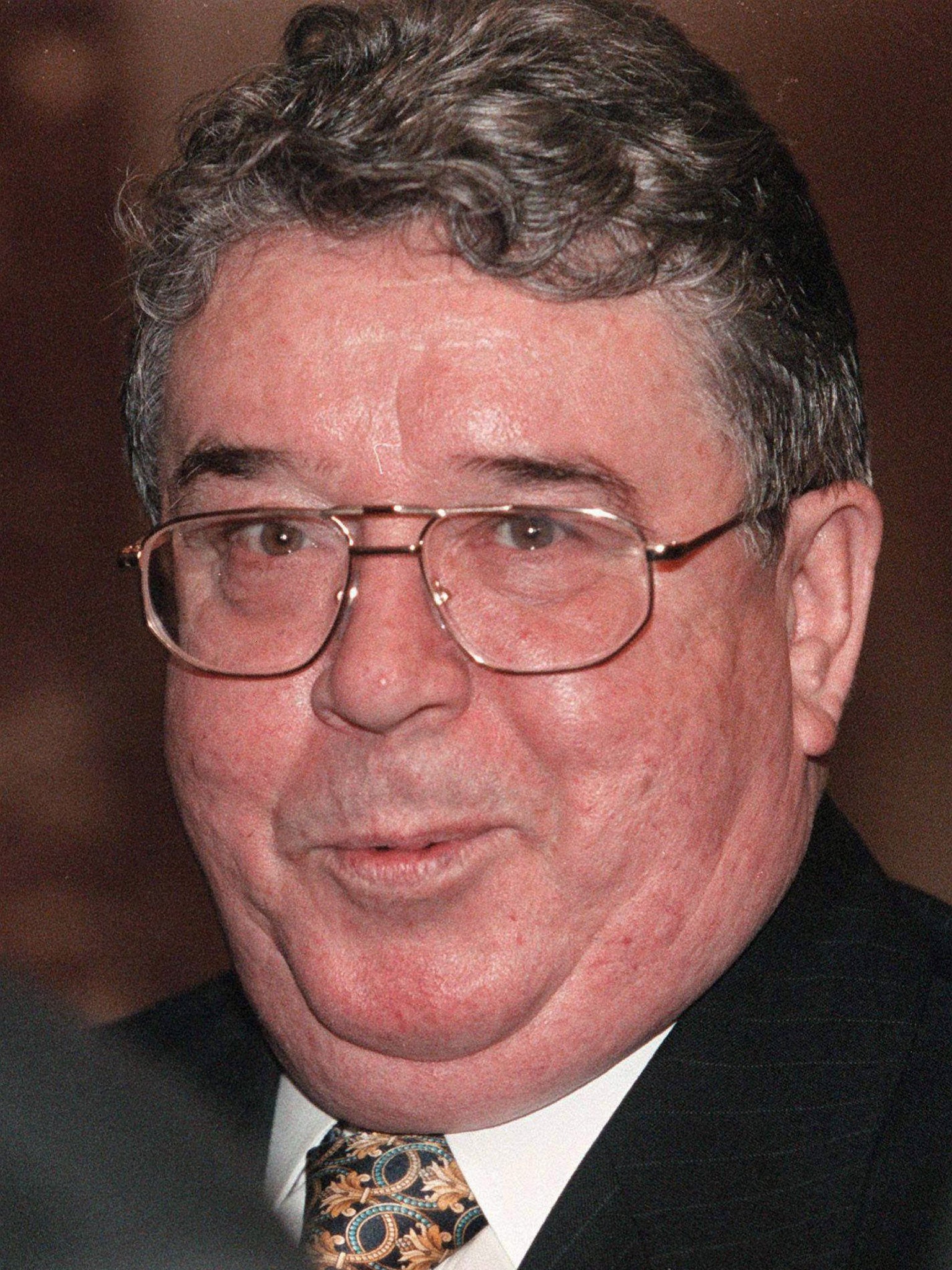Rem Vyakhirev: Gas industry executive who built up Gazprom into a global player

Your support helps us to tell the story
From reproductive rights to climate change to Big Tech, The Independent is on the ground when the story is developing. Whether it's investigating the financials of Elon Musk's pro-Trump PAC or producing our latest documentary, 'The A Word', which shines a light on the American women fighting for reproductive rights, we know how important it is to parse out the facts from the messaging.
At such a critical moment in US history, we need reporters on the ground. Your donation allows us to keep sending journalists to speak to both sides of the story.
The Independent is trusted by Americans across the entire political spectrum. And unlike many other quality news outlets, we choose not to lock Americans out of our reporting and analysis with paywalls. We believe quality journalism should be available to everyone, paid for by those who can afford it.
Your support makes all the difference.Under Rem Vyakhirev Gazprom expanded long-term gas supply contracts with European buyers and oversaw large-scale projects such as the Blue Stream pipeline across the Black Sea to Turkey and the Yamal-Europe link across Belarus to Poland. But he was accused of running Gazprom, as one critic put it, as "a candy store to provide sweet deals for whoever was running it."
Rem Vyakhirev was born in the village of Bolshaya Chernigovka in Russia in 1934, which even today is described by travellers as a poor and sad place. His father and mother were reportedly a blacksmith and schoolteacher respectively. Either out of conviction, fear or clever opportunism, they registered their son as Rem, a name they made up from "Revolution", "Engels" and "Marx". Sensibly they did not attempt to work Stalin into his name.
Rem was born into a society in turmoil. Hunger and Stalin's great purge accompanied his early childhood, followed by the Second World War. He went to the neighbouring city of Samara for his education. It was an impressive place, known as the "Russian New Orleans" and "Russian Chicago"; perhaps its old mansions led Vyakhirev to dream of future affluence. In 1935 it was renamed Kuybyshev in honour of the Politburo member Valerian Kuybyshev, and was chosen by Stalin as the alternative Soviet capital should Moscow fall to the Nazi invaders; ministries and embassies moved there.
Vyakhirev studied engineering, graduating in 1956. It was a time of optimism after the cloud of Stalinism had been lifted. At the 20th Congress of the Communist Party Nikita Khrushchev delivered his "secret" speech denouncing Stalin and ushering in a less repressive era. He aimed to catch up with, and overtake, the West within a few years, and engineers appeared to have a bright future.
In the years that followed Vyakhirev worked in the oil economy in various parts of the Kuybyshev region. He made good progress and acquired a reputation for his inside-out knowledge of the technical side of business. As one source put it, "He seemed to know every valve in the sector." His dedication led to his appointment as head of the gas development administration, and from 1983-85 he was a deputy minister of the Soviet gas industry. The following year he was promoted to first deputy minister and between 1989 and 1992 served as deputy chairman of the executive committee of the state energy concern, where his boss was Viktor Chernomyrdin.
In August 1989 the two men were the key to the transformation of the old ministry into Gazprom, Russia's first state-corporate enterprise. It controlled not only all the production fields but also all the natural gas pipelines in Russia, accounting for roughly a third of the world's gas reserves.
In May 1992 Russia's new President, Boris Yeltsin, appointed Chernomyrdin Deputy Prime Minister and Vyakhirev stepped into his shoes as chairman of Gazprom. In December that year Chernomyrdin became Prime Minister.
As the Yeltsin government promoted massive privatisation, the fate of Gazprom was in the balance. After much manoeuvring, Gazprom remained a monopoly, thus avoiding the fate of Russia's oil production concerns, which were broken into several entities.
In November 1992, in preparation for its partial privatisation, Yeltsin issued a decree converting Gazprom from a joint-stock company wholly owned by the state into a private, independent joint-stock company. Chernomyrdin saw to it that his protégé, Vyakhirev, was appointed chief executive.
During his years at the top Vyakhirev ran Gazprom almost as a family business, with his brother and son among the chief beneficiaries. In another cruel fraud against the long-suffering Russian people, in a secret trust agreement Vyakhirev and some other officials were issued options to buy 30 per cent of Gazprom stock at bargain-basement prices. The company executed large-scale tax evasion and the state received little revenue from dividends. The management and board members were accused of massive asset-stripping.
When Vladimir Putin became President of Russia in 2000, he launched a campaign to change the culture at Gazprom. He fired Chernomyrdin as the chairman of the company's board and used the stock owned by the state to vote out Vyakhirev. In 1998 Vyakhirev assets qualified him for a place on Forbes' list of the world's 200 richest people; in 2004 the magazine estimated his net worth at $1.2 billion.
After resigning as chief executive, Vyakhirev became Gazprom board chairman but resigned in 2002, and thereafter virtually disappeared from public life. In a dramatic change of lifestyle he lived somewhat reclusively at an estate outside Moscow which he rarely left, contenting himself with carp fishing and breeding deer. He died there from heart problems.
David Childs
Rem Vyakhirev, gas industry executive: born Bolshaya Chernigovka, Russia 23 August 1934; married (one son, one daughter); died Moscow 11 February 2013.
Join our commenting forum
Join thought-provoking conversations, follow other Independent readers and see their replies
Comments